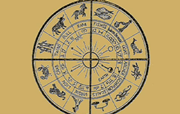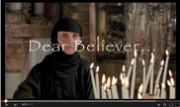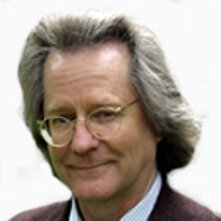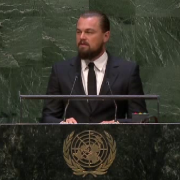 Knights Templar before Jerusalem, from a 14th-century manuscript recounting the First Crusade.
Knights Templar before Jerusalem, from a 14th-century manuscript recounting the First Crusade.
Getty Images / The Bridgeman Art Library
In 1095, Pope Urban II asked the knights of France to take on a sacred mission. The Christians of the East had fallen under the dominion of Muslim rulers, as had the holy city of Jerusalem, and it was time to rescue them. It was to be, the pope suggested, "an act of love" where they were to "nobly [lay] down their lives for their Eastern brothers".
The knights left in the spring, brimming with zeal to win back the Holy Land for Christendom. In Germany, they pillaged and murdered the local Jewish population. "Do we need to travel to distant lands in the East to attack the enemies of God," wondered one participant, "when there are Jews right before our eyes, a race that is the greatest enemy of God?" After arriving in Jerusalem in 1099, following years of bloody attacks on the local Muslim population, and a five-week siege of the city, the knights gathered at the tomb of Jesus, singing Easter hymns and thanking God for their success. It was the first Crusade. More killing would follow.
The religious historian Karen Armstrong has set herself a complex and fraught task with her new book, "Fields of Blood: Religion and the History of Violence". Surveying the whole of recorded human history, the former Roman Catholic nun seeks to discover the links between religious belief and violence like the Crusaders'. What inspires the faithful to take up arms in the name of God? Is religion, as Armstrong imagines its critics arguing, "responsible for more war, oppression, and suffering than any other human institution"?
In books like "A History of God" and "The Battle for God", Armstrong has revealed herself to be a fluid and insightful synthesist, able to compare religious practice and belief across the centuries and seeking out echoes between faiths that insist on their fundamental uniqueness. Religion, she argues, is always and forever intertwined with politics, with violence as much an expression of the latter as the former. And beliefs about the relationship between faith and violence are constantly being rewritten and rebalanced. The Aryan kings of India enacted a ritual in which they would set a horse free and allow it to roam for a year, with their armies following closely behind - an effective enshrining of a policy of conquest in a religious and monarchical framework.

Destruction of the Temple in Jerusalem by Francesco Hayez depicts the destruction
of the Second Temple by Roman soldiers. Oil on canvas, 1867
The destruction of the Second Temple led the Jewish rabbinical elite to embrace scholarship and eschew violence, de-emphasising temple worship in favor of legal and textual analysis, and to institute new rules forbidding the carrying of weapons on the Sabbath. The ceaseless attacks of medieval Christian knights on the populations they were supposedly protecting led to the establishment of the Peace of God, in which knights were forced to swear "that they would stop tormenting the poor", and the Truce of God, in which all fighting was banned between Wednesday night and Monday morning, the days of Jesus's arrest, crucifixion and resurrection. Early Muslim thought emphasized pacifism as a marked contrast with the violent pre-Islamic culture of the Arabian Peninsula, until the need for economic and territorial growth encouraged a shift towards Islam as a global religion, bringing enlightenment through conquest, if necessary.
But Fields of Blood is less history than polemic. Armstrong has a brief - to defend religion against the slings and arrows of outrageous secularism - and writes from a defensive crouch, intent on downplaying any perception of religion as a fundamental motivating factor in human violence. "Modern society has made a scapegoat of faith," she argues in the book's introduction, and the rest of Fields of Blood aims to debunk the notion that religion is exclusively or excessively responsible for the world's ills.
Acts of violence are either committed by nationalists and secularists or are products of political fervour. The "proto-secular state" of the Chinese Qin dynasty was responsible for "one of the first inquisitions in history". What of the Spanish Inquisition? "Exaggerated tales," ultimately "caused less by theological than political considerations". The auto-da-fé was merely propaganda fodder for Spain's enemies, its death toll far outpaced by contemporaneous campaigns against religious minorities. The medieval interrogators of heretics and apostates, who attempted to torture their prisoners into religious submission, "often genuinely wanted to bring the wayward back into the fold and that the death of an unrepentant heretic was seen as a defeat".
Armstrong makes a habit of downplaying one religiously fuelled atrocity by highlighting another. She regularly analyses cruel behavior through the lens of the beliefs of the people committing the atrocities. Religious torturers may have meant well, but bloodthirsty savagery often appears in the guise of piety or patriotism or self-defense. Fields of Blood's defense of religion also mostly ignores (with the exception of the Crusades) the long, squalid history of religiously motivated violence and bigotry towards practitioners of other faiths. What is the thousand-year history of anti-Semitism in Europe other than an expression of Christian fear and hatred of Judaism, often emerging in outbursts of horrific violence prompted by wild rumors of Jews killing children or poisoning wells?

Armstrong, writing for a secularized western audience, wants us to clear away our ill-informed beliefs about the corrosive effects of religious faith. Religion is forever intertwined with politics and society, and is rarely responsible for the crimes attributed to its influence. But merely to state that religion's violent impulses are often linked to nationalist ideology, or that those who commit crimes in religion's name are often ignorant about its tenets, is not enough.
Turning her attention to recent history, Armstrong's ecumenicalism causes her to stumble more than once. It is not an entirely fruitful comparison to contrast the American Christian Identity survivalist group, loopy but ultimately non-violent, with an Iranian theocratic regime that sent prepubescent boys into battle to clear Iraqi mines. Hezbollah is described as a kind of community organization; its foundational ideas compared to Confucianism and its mission as similar to that of American civil rights activists. Its violent acts, like its killing of 241 American soldiers in Lebanon in 1983, are "not simply inspired by religious zeal but had a clear political objective".
But as Armstrong herself notes, Muslim thinkers like Abul A'la Maududi had long argued that Islam was not a religion in the western sense, private and constrained, but an all-encompassing legal, social, and political framework. So if religion was inseparable from the public sphere, how could any religiously motivated act not be political?
Armstrong is wise to search for the roots of fundamentalism, not just of the Muslim variety but its Christian, Jewish, and Hindu varieties as well, in a modern, secular world that is perceived as a mortal threat to the eternal verities of religion.
But she fails to ask the difficult questions that might unravel her argument in defense of religion, such as why rabidly militant, religiously oriented splinter groups like ISIL have proven so powerful. Why do some violent Muslim groups continue to dream of enforcing religious law on all in their midst, or of restoring a premodern theocracy? Why do 21st-century Hindu religious zealots orient themselves, politically and geographically, around the purported site of an 11th-century massacre by a Muslim sultan? These questions might imply a tilt towards religious skepticism, and are thus avoided. Fields of Blood begins with a conclusion and massages the evidence into place, but for all of Armstrong's vaunted erudition, the history of religious violence is not so easily summarized, or dismissed.
By Saul Austerlitz . . Saul Austerlitz's work has been published in The New York Times, Los Angeles Times and the Boston Globe among other publications.
 Video: World's Oldest Freethought Publication
Video: World's Oldest Freethought Publication Video: Theism is Not Rational by Aron Ra.
Video: Theism is Not Rational by Aron Ra.


 Video: A C Grayling Discusses Humanism
Video: A C Grayling Discusses Humanism Video: Leonardo DiCaprio
Video: Leonardo DiCaprio 30 Of The Most Violent Exhortations From The Bible, Torah, And Quran
30 Of The Most Violent Exhortations From The Bible, Torah, And Quran











